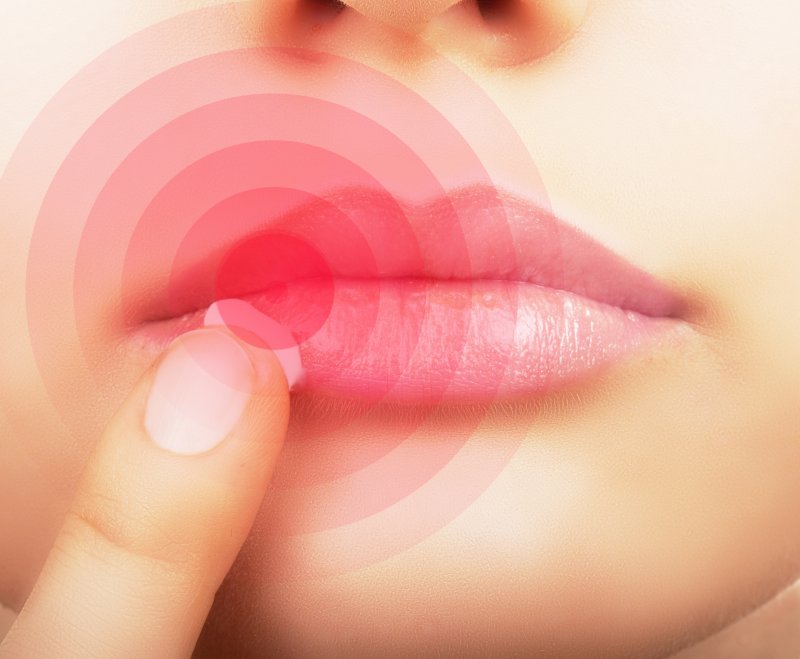
There’s nothing worse than a sore in your mouth, and unfortunately, the most common ones can be difficult to tell apart. It’s no fun to be uncomfortable and not even know why; if anything, the mystery only makes it more irritating.
If you want to know what to do about a mouth sore here’s a guide to the most common ones, what causes them, and how to tell them apart.
What Are the Most Common Mouth Sores?
If you’ve developed an oral lesion, it’s likely either a canker sore or a cold sore. Canker sores occur inside the mouth, on the cheeks or gums, and can sprout for a variety of reasons. Cold sores, on the other hand, often sprout on the lips or face. Cold sores are caused by the herpes simplex virus, usually by HSV-1.
How to Tell the Difference
While these sores occur for radically different reasons, it can be hard to tell them apart. Here are some of their identifying characteristics.
Cold Sores
Cold sores can present a little differently depending on if you’ve only recently contracted the virus or if you’ve had it for a while.
A new infection might cause a tingling or burning in the mouth before the arrival of some painful sores on the lips or face. This can be accompanied by some flu-like symptoms, e.g. sore throat, fever, and headache. If you’ve had the disease for a while, you’ll experience the sores without the flu-like symptoms.
The sores themselves are:
- Fluid-filled
- Painful
- Can crust over after breaking open
- Located mostly on the face, nose, or lips
Canker Sores
These can be caused by a variety of things, like injury or vitamin deficiencies. Canker sores are:
- Preceded by a burning or tingling
- Round or ovular
- White or yellow, with a red border around them
- Located only on the soft tissues in the mouth
Fortunately, treatment for both cold and canker sores is basically the same; after two weeks or so, they’ll go away on their own. Until then, stock up on over-the-counter pain medication and you should be fine.
About the Author
Dr. Henry Lu’s primary motivation as a dentist is ensuring that none of his patients ever have to feel bad about their teeth. Helping members of his community look their best is what gets him up in the morning, and why he works so hard every day. Dr. Henry is a graduate of the Nova Southeastern University College of Dental Medicine, and he’s a proud member of the American Dental Association.
If you have any questions about viral infections and oral health, he can be reached at his website or by phone at (469) 998-9822.
